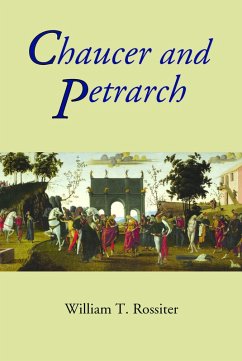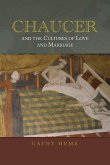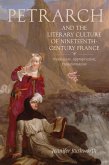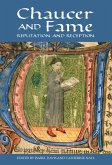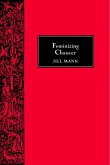First full study of Chaucer's readings and translations of Petrarch suggests a far greater influence than has hitherto been accepted.
Despite the fact that Chaucer introduced Petrarch's work into England in the late fourteenth century, Petrarch's influence has been very little studied. This book, the first full-length study of Chaucer's reading and translation of Petrarch, examines Chaucer's translations of Petrarch's Latin prose and Italian poetry against the backdrop of his experience of Italy, gained through his travels there in the 1370s, his interaction with Italians in London, andhis reading of the other two great Italian medieval poets, Boccaccio and Dante. The book also considers Chaucer's engagement with early Italian humanism and the nature of translation in the fourteenth century, including a preliminary examination of adaptations of Chaucer's pronouncements upon translation and literary production. Chaucer's adaptations of Petrarch's Latin tale of Griselda and the sonnet "S'amor non è", as the Clerk's Tale and the "Canticus Troili" from Troilus and Criseyde respectively, illustrate his various translative strategies. Furthermore, Chaucer's references to Petrarch in his prologue to the Clerk's Tale and in the Monk's Tale provide a means of gauging the intellectual relationship between two of the most important poets of the time.
WILLIAM T. ROSSITER is Senior Lecturer in Medieval and Early Modern Literature, University of East Anglia.
Despite the fact that Chaucer introduced Petrarch's work into England in the late fourteenth century, Petrarch's influence has been very little studied. This book, the first full-length study of Chaucer's reading and translation of Petrarch, examines Chaucer's translations of Petrarch's Latin prose and Italian poetry against the backdrop of his experience of Italy, gained through his travels there in the 1370s, his interaction with Italians in London, andhis reading of the other two great Italian medieval poets, Boccaccio and Dante. The book also considers Chaucer's engagement with early Italian humanism and the nature of translation in the fourteenth century, including a preliminary examination of adaptations of Chaucer's pronouncements upon translation and literary production. Chaucer's adaptations of Petrarch's Latin tale of Griselda and the sonnet "S'amor non è", as the Clerk's Tale and the "Canticus Troili" from Troilus and Criseyde respectively, illustrate his various translative strategies. Furthermore, Chaucer's references to Petrarch in his prologue to the Clerk's Tale and in the Monk's Tale provide a means of gauging the intellectual relationship between two of the most important poets of the time.
WILLIAM T. ROSSITER is Senior Lecturer in Medieval and Early Modern Literature, University of East Anglia.
Dieser Download kann aus rechtlichen Gründen nur mit Rechnungsadresse in A, D ausgeliefert werden.

